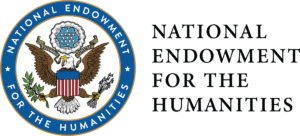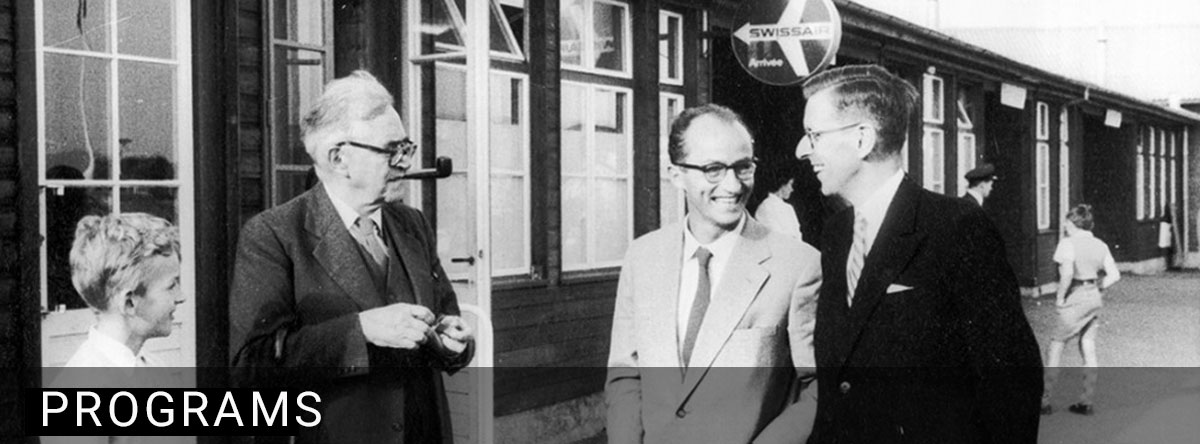 In 2018, the Center for Barth Studies at Princeton Theological Seminary received the Scholarly Editions and Translations Grant from the National Endowment for the Humanities (NEH) to translate into English three volumes from The Lectures and Shorter Works of Karl Barth, 1905-1909, 1909-1914, and 1914-1921. These generous NEH grant funds enable the Seminar to meet twice per year to work together and translate these three volumes into English allowing for greater translation efficiency. The first volume of these English translations in print and digital editions has been published with Westminster John Knox Press as The Early Karl Barth – Lectures and Shorter Works (Volume 1, 1905–1909). Volumes 2 and 3 will be published in early 2024 and 2025, respectively.
In 2018, the Center for Barth Studies at Princeton Theological Seminary received the Scholarly Editions and Translations Grant from the National Endowment for the Humanities (NEH) to translate into English three volumes from The Lectures and Shorter Works of Karl Barth, 1905-1909, 1909-1914, and 1914-1921. These generous NEH grant funds enable the Seminar to meet twice per year to work together and translate these three volumes into English allowing for greater translation efficiency. The first volume of these English translations in print and digital editions has been published with Westminster John Knox Press as The Early Karl Barth – Lectures and Shorter Works (Volume 1, 1905–1909). Volumes 2 and 3 will be published in early 2024 and 2025, respectively.
Karl Barth became widely known first through his commentary on the Epistle to the Romans (1922) and later through the twelve volumes of his Church Dogmatics (Kirchliche Dogmatik 1932-1967). Even today it is mainly these two works which are connected with his name and his worldwide influence. It should not be forgotten, however, that Barth did not only have an impact on the intellectual life of the twentieth century through these great and massive works, based as they were on the principles of a strictly scientific theology and spanning a wide systematic context, but also through many lectures and essays which were published as newspaper articles, in journals, or as pamphlets. Somewhat similar to the pamphlet literature of the Reformation period, many of them had a considerable effect far beyond the so-called religious circles. Among the best known examples are the brochure “Theological Existence Today!” of 1933—“the most courageous and refreshing statement made and printed in Germany in the last half year” as Thomas Mann, exiled from his homeland, described it in September of 1933 – and the “Barmen Declaration” of 1934 which became the charter of the “Confessing Church” in Germany during the Nazi period and has since been adopted as a confessional document by many churches throughout the world.
These lectures and essays carry their own weight and have their special significance, on the one hand because in them Barth succinctly formulates basic insights and decisions which he unfolds in his books in a broader and more thorough way but also in less easily understandable and accessible form. On the other hand, Barth explains in them the ethical and political implications and consequences of his dogmatics without which an adequate understanding of the intentions of his main works is impossible. He also is dealing here time and again with historical, sociological, philosophical, and aesthetic questions and topics which definitely have a lively importance for the formation and application of his thought but are simply nowhere else addressed directly except in such secondary publications. All these texts are being published in chronological sequence in Section III of the Collected Works of Karl Barth (Karl-Barth-Gesamtausgabe), “Lectures and Essays” [Vorträge und kleinere Arbeiten]. To date, the texts from 1905 to 1937 have been published in eight volumes.
Decisive insights can be gained from these lectures and essays for the understanding of the change of social, economic, and political epochs before, during, and after World War I and its consequences for the function of religion and church in society, for the relation between church and state, theology and politics, and quite generally between God and the World. They also make visible the path leading to this change as a path of searching for the right categories of understanding. Barth’s extensive reflections in these lectures and essays on various events and topics during this tumultuous time period endures for scholars working in the humanities today who ask questions related to the relationship between religion and society during periods of political turmoil. This project will significantly expand access to non-German reading/speaking scholars and students working in religious studies, as well as other disciplines in the humanities including philosophy, history, and theology, to the writings of one of the most important theologians and public intellectuals in the 20th century.


